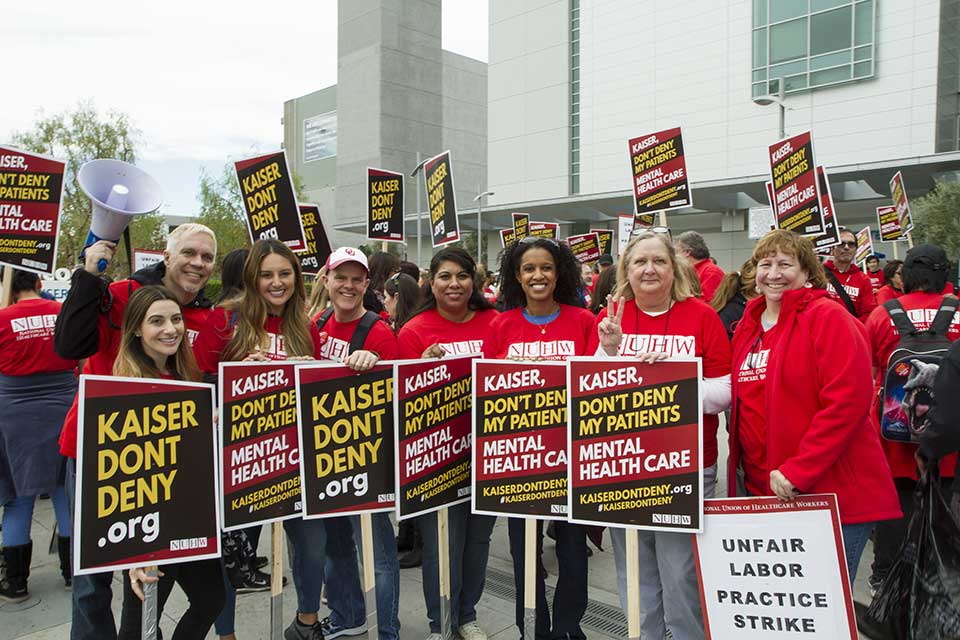#KaiserPermanente #Therapists #Psychologists #Socialworkers #MFT #LCSW,
About 4,000 unionized therapists, psychologists, social workers, and other mental health workers at 100 Kaiser Permanente medical offices across California plan to begin a five-day strike Monday.
The strikes are slated to start at 6 a.m. Monday at 10 locations in Southern, Central and Northern California. In the Bay Area, workers will form picket lines Monday outside Kaiser’s San Francisco medical center on Geary Boulevard and two Santa Clara locations — the medical center on Lawrence Expressway and Tantau Clinic on Homestead Road.
Protests by members of the National Union of Healthcare Workers will continue throughout the week at various locations. They plan to picket outside Kaiser’s Oakland medical center on Tuesday; Livermore, Redwood City, San Leandro, Vallejo and Walnut Creek medical centers on Wednesday; and Oakland, San Jose, San Rafael and Vacaville on Friday.
The workers are objecting to what they say are long wait times — weeks or sometimes months — for patients trying to see a mental health professional for follow-up appointments.
The union’s contract with Kaiser expired in September 2018. In December, thousands of NUHW workers engaged in a statewide strike over similar concerns about patient wait times.
“We’re fighting to make Kaiser provide quality mental health care,” said Matt Hannon, a Kaiser psychologist in South San Francisco. “Our patients can’t get timely appointments, and our schedules are booked solid.”
Kaiser facilities will remain open during the strike, a Kaiser spokeswoman said. Kaiser patients who have appointments with mental health clinicians scheduled for next week should plan to keep those appointments unless contacted by Kaiser to inform them otherwise, she said. Physicians, managers and non-unionized contract mental health workers will staff the appointments.
“It is disappointing that, once again, the leadership of the National Union of Healthcare Workers is calling on our mental health therapists to walk away from their patients,” Kaiser Vice President of Communications John Nelson said in a statement. “This planned strike does not make sense given that we’re offering generous wages and benefits that will keep our therapists among the best compensated in Californian ... and have taken important steps to help address the nation’s crisis in mental health care — hiring hundreds of new therapists, building new treatment facilities, and investing $40 million to help people enter the mental health care profession.”
In 2013, Kaiser faced a $4 million fine by the California Department of Managed Health Care for inadequate patient access to mental health treatment. In 2017, the agency again criticized Kaiser for delays in behavioral health treatment but did not issue another fine.
By Catherine Ho -sfchronicle.com


Comments
Post a Comment